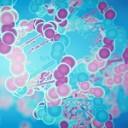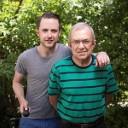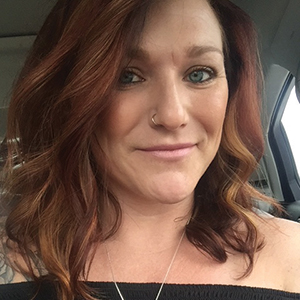-
2018 SABCS: Choosing the Right Treatment
Studies presented at the 2018 San Antonio Breast Cancer Symposium investigate when patients with early-stage breast cancer or precancerous breast conditions benefit from receiving less intense treatment.
by Kate Yandell
-
Coping With Head and Neck Cancer
Patients with head and neck cancer often face physical, social and emotional issues that can add to existing mental health problems or give rise to new ones.
by Cheryl Platzman Weinstock
-
Guiding Care
Medical oncologist Gabrielle Rocque explains the role of clinical practice guidelines in breast cancer care.
by Anna Azvolinsky
-
Does Medicaid Expansion Have an Impact?
Analysis suggests states that opted for Medicaid expansion had higher use of hormone therapy for breast cancer patients.
by Marci A. Landsmann
-
Palliative Care Pays Off
Patients with advanced cancer who receive palliative care tend to live longer and have better quality of life than those who do not receive this care.
by Cheryl Platzman Weinstock
-
An Uncommon Partnership
Through the Angiosarcoma Project, researchers are partnering with patients to learn about a rare cancer.
by Ashley P. Taylor
-
Why I Put Down My Camera
A professional photographer shares advice on living in the moment after caring for his father, who had stage IV lung cancer.
by Jay Perry
-
A Sense of Purpose
In a Facebook Live discussion about When Breath Becomes Air, Lucy Kalanithi talks about safeguarding a person’s identity in the face of terminal disease and shares tips and resources for caregiving.
by Marci A. Landsmann
-
Caregiving With Confidence
Make Your Mental Health a PriorityRecognize the signs of a serious mental illness and get help if you need it.
by Lisa O’Leary
-
Raising Their Voices
People with metastatic breast cancer are demanding to be seen, counted and included in breast cancer research.
by Sue Rochman
Cancer Talk
Lessons From 20 Years Living With Cancer
Multiple myeloma survivor Jonathan Gluck reflects on uncertainty, and the scientific progress that has kept him living with cancer for more than two decades.
by Eric Fitzsimmons
The Enduring Importance of Cancer Disparities ResearchOpening session from AACR conference highlights how perseverance and adversity have informed cancer disparities research over the years.
by Eric Fitzsimmons
Most Cancer Survivors Don’t Meet Healthy Diet GoalsDespite research linking fruits and vegetables to cancer survival, many people do not change their eating habits after diagnosis.
by Darlene Dobkowski
Many People Don’t Get Colonoscopy After Receiving Abnormal Blood TestsAbout half of people who receive abnormal results from colorectal cancer screening tests don’t follow up with a colonoscopy.
by Laura Gesualdi Gilmore















